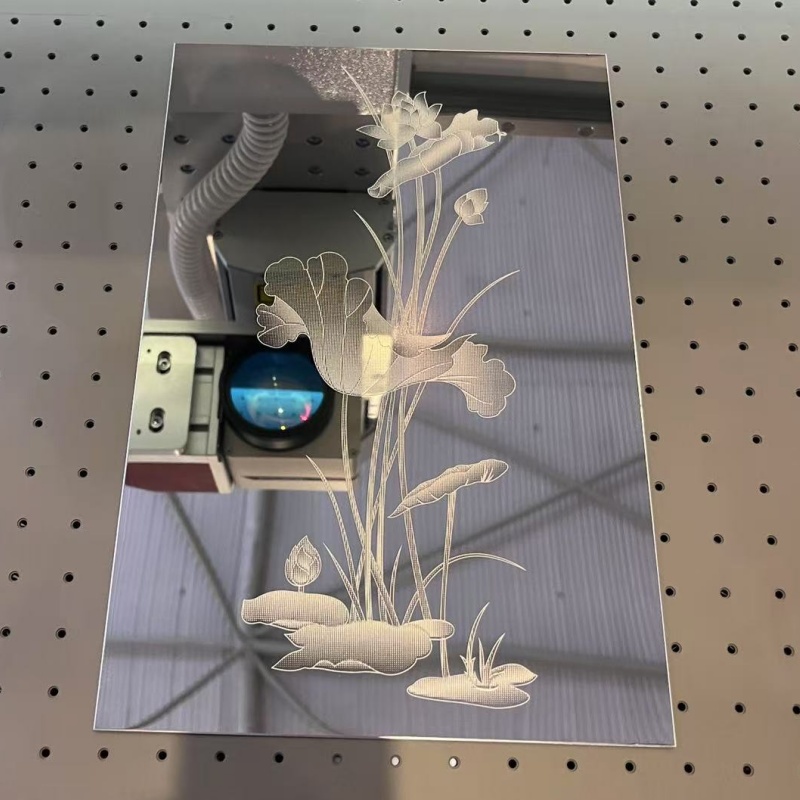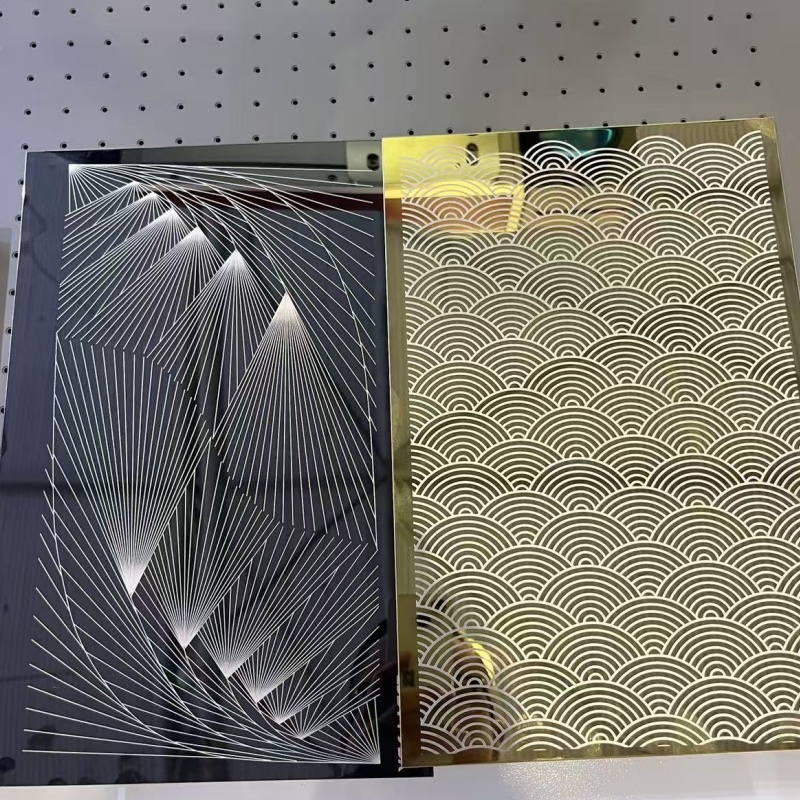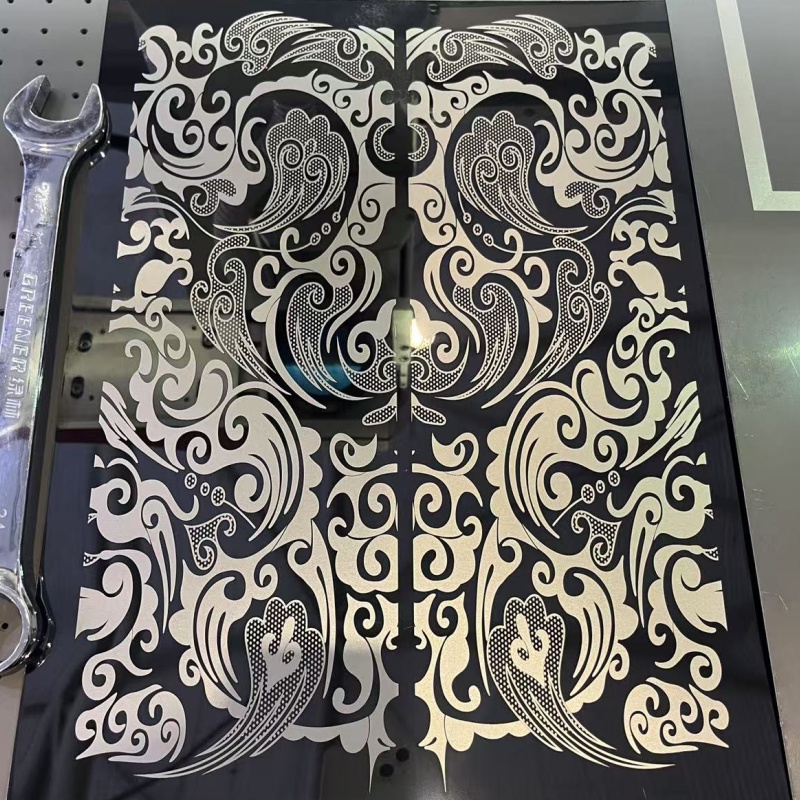Amidst the continuous innovation of etching technology, laser etching machines have emerged with their unique advantages, becoming an indispensable key piece of equipment in modern industrial production. They eliminate the reliance on chemical reagents or complex electrochemical reactions of traditional etching methods. Using a high-energy laser beam as a “knife,” they leave precise and lasting marks on the surfaces of various materials, revolutionizing precision machining across various industries.
The operating principle of laser etching machines is based on the high energy density of lasers. When a laser beam of a specific wavelength is focused on a material’s surface, it instantly transfers energy, causing molecules or atoms on the surface to absorb the energy and undergo a series of physical or chemical changes. Depending on the material, these changes can manifest as melting, vaporization, oxidation, or phase transitions. For example, on metals, the high laser energy rapidly melts and vaporizes the metal in the irradiated area, forming a recessed etching mark. On non-metallic materials like plastics or ceramics, the laser can disrupt the molecular structure of the surface, creating clear patterns or text. Throughout the entire process, the laser beam can be focused down to a diameter as small as microns. This enables laser etching to achieve extremely high resolution, easily creating fine lines and complex patterns, meeting the stringent microscopic precision requirements of high-end manufacturing.

Compared to traditional chemical and electrolytic etching, laser etching machines offer many significant advantages. Firstly, they offer high precision and resolution. The laser beam’s exceptional focus allows for line widths down to a few microns, enabling the etching of complex patterns on extremely small surfaces. This is crucial for the manufacture of high-precision products such as integrated circuits and microelectronic components. Secondly, laser etching is non-contact. During laser etching, the laser beam does not come into direct contact with the material surface, eliminating the deformation, damage, or contamination that can occur with mechanical contact in traditional etching, ensuring the original properties and surface quality of the processed material. Furthermore, laser etching machines offer high processing efficiency and flexible operation. Computer programs can precisely control the laser beam’s trajectory and energy parameters, enabling automated, mass-produced production and significantly improving production efficiency. Furthermore, simply modifying the pattern data in the computer allows for rapid switching of etching content, eliminating the need to change molds or adjust complex process parameters. This significantly enhances production flexibility and adaptability. Laser etching is also environmentally friendly. The entire process does not require the use of corrosive chemicals and does not generate large amounts of waste liquids, waste residues, or other pollutants, reducing environmental pollution and disposal costs, thus aligning with the development of green and environmentally friendly modern industry.
Laser etching machines have a wide and continuously expanding range of applications. In the electronics and information technology industry, they are used for fine marking and etching circuits on chips and circuit boards. They can clearly etch model numbers, parameters, and other information on the surfaces of even the smallest electronic components, facilitating product traceability and quality control. In the automotive industry, laser etching can permanently mark automotive parts, such as serial numbers on engine blocks and QR codes on chassis components. These markings are resistant to high temperatures, wear, and corrosion, ensuring they remain legible throughout the vehicle’s lifespan. In the aerospace industry, laser etching machines are used for the precision machining and marking of spacecraft components, ensuring their quality and reliability, due to the extremely high demands on material properties and processing precision. Furthermore, in jewelry processing, laser etching can create exquisite patterns and designs on precious metal surfaces, enhancing the artistic value of jewelry. In medical device manufacturing, it can etch sterile markings and operating instructions on surgical instruments, ensuring medical safety. With the continuous advancement of technology, laser etching machines are also undergoing continuous development and improvement. On the one hand, the continuous emergence of higher-power and higher-beam-quality lasers has enabled laser etching machines to process a wider variety of materials, including some special materials with high hardness and high melting points, such as silicon carbide and diamond, expanding their application range. On the other hand, with the continuous improvement of intelligence and integration, laser etching machines are gradually being integrated with technologies such as computer-aided design (CAD) and machine vision, enabling real-time monitoring, automatic calibration, and quality inspection of the processing process, further improving processing accuracy and stability. Furthermore, to meet the needs of personalized customization and small-batch production, miniaturized and portable laser etching equipment is becoming increasingly popular in the market, providing convenient processing tools for creative design, handicrafts, and other fields.

With their outstanding advantages of precision, efficiency, environmental friendliness, and flexibility, laser etching machines are profoundly changing the landscape of modern etching processing. In the future of industrial development, with the continuous breakthroughs in laser technology and the gradual reduction in costs, laser etching machines are bound to play a vital role in more fields, contributing more to the transformation and upgrading of the manufacturing industry and its high-quality development.



